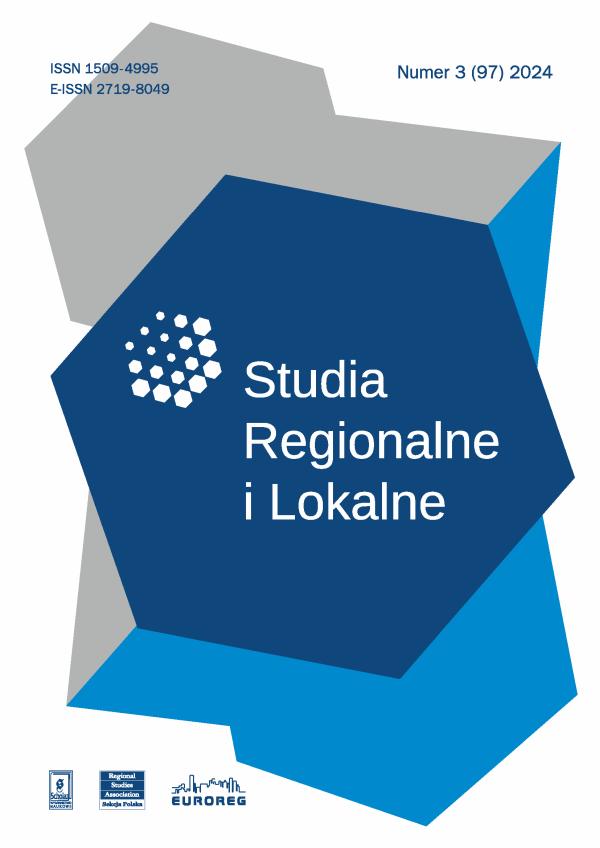Issue:
3(97)2024
Wirginia Aksztejn, Łukasz Mikuła, Marta Lackowska
Local Governments of Large Polish Cities in the Face of Recentralisation: Attitudes and Their Determinants. A Study of the Years 2015–2023
DOI: 10.7366/1509499539704
Samorządy dużych polskich miast wobec recentralizacji – postawy i ich uwarunkowania. Studium okresu 2015–2023
W artykule poddajemy analizie reakcje dużych polskich miast (powyżej 100 tys. mieszkańców) na presję (re)centralizacyjną rządu w latach 2015–2023. Nawiązując do opracowanej typologii tych reakcji, podejmujemy próbę pomiaru natężenia kontestacji ze strony miast oraz określenia zmiennych budujących potencjał jej wyrażania. Jako mierniki kontestacji przyjęliśmy uczestnictwo prezydenta miasta w Ruchu Samorządowym „Tak! dla Polski”, wdrożenie lokalnego programu in vitro oraz obecność w mieście ronda, skweru bądź ulicy Praw Kobiet. Zmiennymi niezależnymi były: wielkość i zamożność miasta, afiliacja polityczna prezydenta miasta i preferencje polityczne lokalnego elektoratu. Badanie wykazało, że wielkość miasta i preferencje polityczne jego obywateli są czynnikami najsilniej związanymi ze skłonnością do zachowań kontestacyjnych wobec polityki rządu.
Local Governments of Large Polish Cities in the Face of Recentralisation: Attitudes and Their Determinants. A Study of the Years 2015–2023
In the article, we analyse the reactions of large Polish cities (over 100,000 inhabitants) to the (re)centralisation pressure of the central government in 2015–2023. Referring to the developed typology of these reactions, we attempt to measure the intensity of contestation on the part of cities and determine the variables that build the potential for expressing such contestation. As measures of contestation, we use three variables: the city mayor’s participation in the Self-Government Movement “Yes! For Poland”, the adoption of a local in vitro programme and the presence of a roundabout, square, or street named after Women’s Rights in the city. The independent variables were the city’s size and wealth, the city mayor’s political affiliation, and the local electorate’s political preferences. The study showed that the city’s size and its citizens’ political preferences are the factors most strongly associated with the tendency to engage in conflictual behaviour towards government policies.
Affiliation:
Wirginia Aksztejn: Uniwersytet Warszawski, Wydział Geografii i Studiów Regionalnych, Katedra Rozwoju i Polityki Lokalnej, ul. Krakowskie Przedmieście 30, 00-927 Warszawa, Polska; ORCID: 0000-0003-2745-0151;
wa.aksztejn@uw.edu.pl Łukasz Mikuła: Uniwersytet im. Adama Mickiewicza w Poznaniu, Wydział Geografii Społeczno-Ekonomicznej i Gospodarki Przestrzennej, Zakład Systemów Osadniczych i Zarządzania Terytorialnego, ul. Krygowskiego 10, 61-680 Poznań; ORCID: 0000-0001-9276-4574;
mikula@amu.edu.pl Marta Lackowska: Uniwersytet Warszawski, Wydział Geografii i Studiów Regionalnych, Katedra Rozwoju i Polityki Lokalnej, ul. Krakowskie Przedmieście 30, 00-927 Warszawa, Polska; ORCID: 0000-0002-7447-1150;
m.lackowska@uw.edu.pl 


